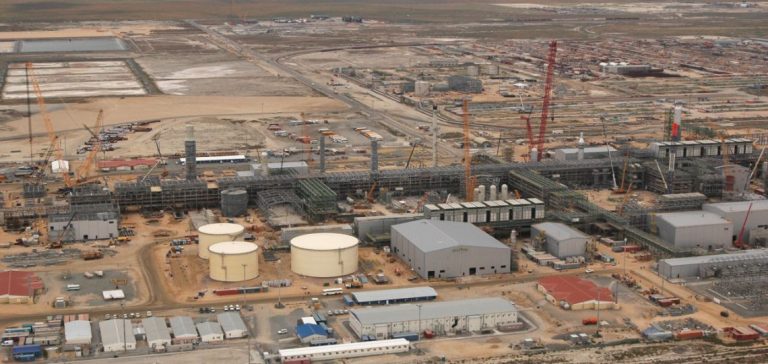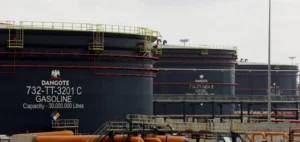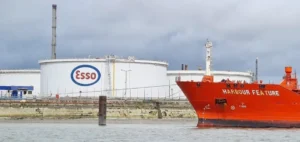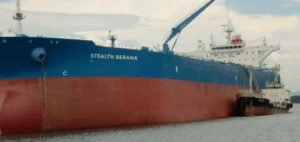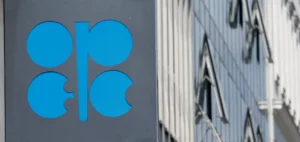The Tengiz oil field, the largest in Kazakhstan and operated by Chevron Corporation, reached a record production level in October, raising concerns about the country’s ability to comply with production quotas set by the OPEC+ alliance. This increase in production occurs amid heightened tensions within OPEC+, where Kazakhstan is cited alongside Iraq and Russia for non-compliance with oil production reduction commitments this year.
In October, Tengiz’s daily production reached 699,000 barrels per day (bpd), up from 687,000 bpd in September, marking a significant 30% increase from August following the completion of maintenance operations. Tengizchevroil, the field’s operator, which comprises Chevron (50%), Exxon Mobil Corp (25%), KazMunayGaz AO (20%), and Lukoil (5%), has invested over $70 billion since the project’s inception in 1993. The Kazakh energy sector has not yet provided comments on its oil production plans for 2024 and 2025.
Context and Importance of Tengiz in Kazakhstan’s Economy
Kazakhstan, ranked among the top ten global oil producers, heavily relies on three major fields: Tengiz, Karachaganak, and Kashagan. The country’s oil production quota under the OPEC+ agreement is set at 1.468 million bpd. In September, Kazakhstan exceeded this quota by approximately 170,000 bpd, highlighting the country’s difficulties in maintaining strict production discipline.
The recent increase in Tengiz’s production further complicates the situation, even though a temporary reduction is planned through the maintenance shutdown of the Kashagan field, which produces 400,000 bpd. Karachaganak is expected to maintain its regular production level of 228,000 bpd. This temporary suspension will allow Kazakhstan to meet its October quota, but the resumption of activities at Kashagan in November is likely to reignite compliance issues.
Expansion and Investments at the Tengiz Field
Chevron and its partners plan to expand Tengiz’s production to 850,000 bpd by the first half of 2025, with expansion costs estimated at around $49 billion. This expansion demonstrates the commitment of the involved companies to maximize the field’s production potential despite the constraints imposed by OPEC+. However, this increase in production capacity could make it difficult to comply with future OPEC+ quotas, potentially straining relationships within the alliance.
The expansion of the Tengiz field represents not only an economic opportunity for Kazakhstan but also a strategic challenge. With increased capacity, the country could strengthen its position in the global oil market, but it could also attract sanctions or additional pressure from OPEC+, which seeks to regulate global supply to stabilize prices.
Pressures and Reactions from OPEC+
The leader of OPEC+, Saudi Arabia, has repeatedly emphasized the need for rival producers to adhere to their production reduction commitments. Saudi Arabia highlighted that improving compliance is an immediate priority before OPEC+ considers releasing more barrels starting in December. This insistence reflects a broader strategy aimed at stabilizing global oil markets and maintaining price levels amid fluctuating demand and regional political uncertainties.
Saudi Arabia’s statements highlight internal tensions within OPEC+, where some members seek to maximize their revenues by increasing production, while others, like Kazakhstan, disagree with these objectives. This dynamic could lead to difficult negotiations and a reevaluation of production quotas for alliance members.
Implications for Kazakhstan and the OPEC+ Alliance
The expansion of the Tengiz field is a crucial issue for Kazakhstan’s economy, which heavily depends on oil revenues for economic stability. However, this production growth places Kazakhstan in a delicate position regarding OPEC+’s international commitments. The return to normal production after the Kashagan maintenance in November could force the country to revise its production strategies or negotiate exemptions within the alliance to maintain its economic benefits while adhering to OPEC+ agreements.
This situation illustrates the challenges faced by oil-producing countries: balancing national economic imperatives with international commitments aimed at regulating the global oil supply. For Kazakhstan, navigating these dual demands will be decisive for its future within OPEC+ and its long-term economic growth.
Future Perspectives and Potential Strategies
Looking ahead, Kazakhstan will need to explore various strategies to reconcile its growth ambitions with OPEC+’s requirements. This could include adjusting production from other oil fields, diversifying the national economy to reduce dependence on oil, or negotiating specific agreements within OPEC+ to obtain some flexibility in quotas.
Moreover, the substantial investments in Tengiz’s expansion reflect the involved companies’ confidence in the field’s long-term potential. However, this expansion could also attract increased attention from regulators and international partners, necessitating careful management to avoid conflicts of interest and maintain harmonious relations within the OPEC+ alliance.


